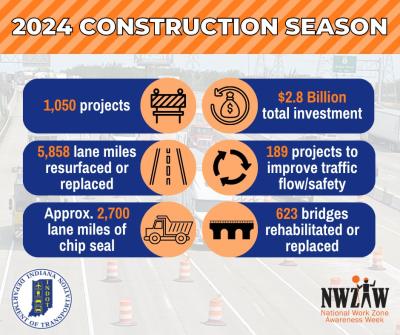As a whole, the asphalt paving industry has made great strides in sustainability over the last decade.
As a whole, the asphalt paving industry has made great strides in sustainability over the last decade.
The asphalt industry can now recycle asphalt 100 percent. The introduction of warm mix asphalt is further evidence of the strides made by the industry to be green. Warm mix plants even have the “green” logo on the asphalt silos. This mix reduces the carbon footprint substantially, while lowering the cost of asphalt production.
The Asphalt Institute has gone to great lengths to test the environmental impact of asphalt and has shown that asphalt does not leach into the environment, even around bodies of water. It is truly an environmentally friendly product.
Equipment manufacturers also have helped to lower the carbon footprint for the paving industry by manufacturing more fuel-efficient equipment with less harmful exhaust. All this adds up to a much greener and more sustainable asphalt industry.
There is one gap in sustainability within the paving industry that should be the next focus for the industry's effort to be green. That gap, at first glance, does not seem to be a major issue. However, once you look at the big picture, this gap is a major problem for the industry. That gap is the paving industry's continued use of diesel fuel to clean tools and equipment at the laydown site and on the drag slats at asphalt plants.
Using diesel fuel on shovels and lutes and to spray down the hopper of the paver as well as chains on material transfer machines has been a common practice since the first asphalt was put down in the U.S. in the late 19th century. The very property of asphalt that makes it an ideal road material, also makes it stick to tools and equipment when in its hot state. Paving and patching crews need solvent that will clean the sticky asphalt off their tools and equipment in order to continue their work. You can't shovel more asphalt when your shovel is already clogged with hardened asphalt. The contractors also like a product that leaves a slick film on the tools and equipment to help prevent the asphalt from sticking as quickly.
Diesel was the ideal product for this purpose.
First, diesel fuel was readily available. Paving machines were even built with a spray down system that pulled diesel fuel directly from the paving machine's diesel fuel tank. All service trucks had tanks of diesel to refuel equipment and to put in five gallon buckets to dip shovels and lutes.
Second, diesel fuel also was fairly cheap, especially, when diesel fuel was under $1 a gallon.
Since asphalt comes from petroleum stock, it takes a similar material to dissolve it. Diesel fuel also left a fairly long lasting slick film on the shovels and hoppers of the paver to prevent asphalt from sticking as quickly. No wonder some asphalt contractors and patch crews still use diesel fuel for cleaning tools and equipment.
Diesel fuel also was used in the beds of asphalt trucks to prevent asphalt from sticking and so it would slide out of the truck easily.
About 25 years ago, asphalt plant operators grew concerned about contaminating the soil at the plant.
You started seeing signs at asphalt plants saying, “no diesel fuel allowed in truck beds.” This gave rise to a whole new industry, bed spray products and automatic spray systems. Several companies have spawned products in this industry, providing soap based release agents for truck beds. These are not cleaning agents, but are used solely to help prevent asphalt from sticking to truck beds. DOTs in almost all if not all states do not allow contractors on state jobs to use diesel fuel in truck beds. This action has kept millions of gallons of diesel fuel off the ground.
This should be extended to the use of diesel fuel at the laydown site on tools and equipment.
There are a multitude of various biodegradable and sustainable products available to the paving industry. These products are made from naturally occurring bi-products of the agricultural industry. All products are certainly not equal, as some clean well but evaporate quickly because of their low flash point. Others leave a film but do not clean very well. The paving contractor can find a product that works as well or better than diesel fuel if they put forth the effort. Just google “biodegradable asphalt solvent” or “environmentally safe asphalt solvent” and see the multitude of products that come up. Do some research and you will find a product that works just like diesel fuel, but is legal to use.
While these biodegradable alternatives to diesel fuel will cost the contractor more per gallon than diesel fuel, there is no more risk of being fined by the EPA or shut down by DOT. If the right product is selected, the cost difference will be minimized because the green solvent will outperform diesel fuel by a rate of close to 4 to 1. This means the contractor can use four times less product than diesel, making the end use cost of the two products much closer.
Add that to the peace of mind of not risking EPA fines and other risks associated with using diesel fuel like worker safety and potential law suits by affected citizens, and the cost difference is justifiable. There have been several incidences where the presence of diesel fuel on truck beds or hot patch trucks has caused explosions injuring workers. The flash point of diesel fuel is only 126 to 137 degrees (52 to 58.3 C). This makes the product extremely volatile when hitting asphalt at 300 degrees or more.
If the paving industry will take this major gap in sustainability to heart and immediately switch from diesel fuel to alternative biodegradable products, the environment will not only be vastly improved, the paving industry can truly say it is a “green industry”. This task will take a major paradigm shift for workers. It will take strong leadership from the industry and from the management of paving companies.
Today's top stories















